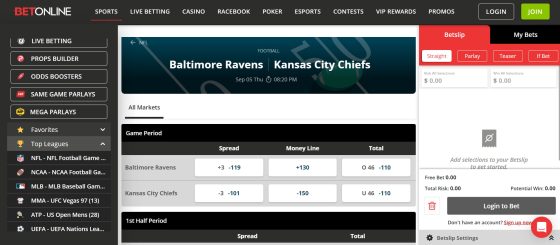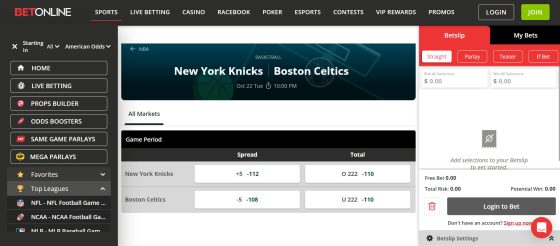Micheal Austin is a professional writer and an extensive researcher of gambling legislation. He has vast experience writing about sport and casino. He currently writes for SportsCasting and has contributed to a wide range of gambling sites and news outlets like Wetten, Cryptomaniaks, and Webopedia among others.
Get to know Mike Austin betterDavid has over 25 years of experience as both a writer and editor within the betting/newspaper industries, working with major publications such as The Guardian, Racing Post and Sky Sports Racing. With a diploma in sub-editing and law, and the author of four books, David now shares his knowledge with SportsCasting as a successful sports editor, writer and tipster.
All posts by David MyersWhat does it mean to cover the spread? In short, it means how well a team performs against the points margin set by a sportsbook.
We know that probably sounds a bit confusing, but understanding the answers to questions like “What does it mean to cover in sports betting?” is where you need to start. Read on to learn more about this.
- Show full guideShow less
What Does “Cover the Spread” Mean?
The spread being covered is when a team needs to either win outright by more than the point spread or lose by less than the spread. The former is the favorite, and the latter the underdog. The spread is just a handicap that you use to balance the betting outcome.
For instance, it makes the betting odds more attractive on the favorite in a match and also gives the underdog a better chance as well. We’ll take a look at a few examples to help you better understand the spread.
Covering the Spread Examples
To understand the spread in betting, let’s check out a few examples:
+7 Spread: Imagine the Kansas City Chiefs are favored by 7 points against the Jacksonville Jaguars. If you bet on the Chiefs, they must win by more than 7 points for you to win your bet. If they win by exactly 7 points, it’s a push (a tie), and your bet is returned to you.
However, if the Chiefs win by only six points, you lose the bet. Conversely, had placed a point spread bet on the Jaguars, and they lost by fewer than 7 points; they cover the spread, and bets on them would win. In short, this is how cover betting works.
3 Point Spread: For another example, let’s assume the Denver Nuggets are favored by 3 points against the Golden State Warriors. If you bet on the Nuggets, they need to win by more than 3 points. If the end score is 85-82 in favor of the Nuggets, the result is a push, and your original stake is returned. However, if the Nuggets win 86-85, your bet loses.
Best Sports for Placing Spread Cover Bets
Now, let’s take a look at some of the sports where the spread works, which will help you answer “What does it mean to cover in betting?”.
NFL
Once you know about the spread, the NFL is a great place to start using the market via an online betting site. This is because the games can be very close, which means that betting on the underdog with a 7-point spread is often a good bet. Still, there are games with clear favorites as well, so you can take advantage of the spread in football and get better odds via the sharpest betting sites for placing a point spread bet on the favorites.
NBA
With cover sports betting in the NBA, you can take on a number of games, as the season is packed with options. The score lines in these matches can vary significantly, so it can be tricky to get the spreads right, but it does make it more interesting. With the higher score lines, the high spreads are generally better, but if you think that a team may lose narrowly, then betting on the underdog can give you some excellent odds.
MLB
In MLB, spread markets are known as run lines. A run line will generally give the underdog a +1.5 run advantage in MLB games. It’s not the best option for spread betting but there are occasions where they can certainly offer value.
NHL
Much like the MLB, in the NHL spread market is called the puck line. The puck line typically gives the underdog +1.5 goals.
MLS
MLS betting has what you call Asian handicap betting. A stronger team might have a -1.5 goal difference, and the underdog will have a +1.5 goal difference. However, this can vary if there is a massive difference in quality between the sides.
Covering the Spread vs. Betting the Moneyline
The difference between moneyline betting and spread betting is pretty clear. Moneyline betting is simply where you place a point spread bet on a team or player to win a match, regardless of what the final score is.
Spread betting is where you are concerned with the score as you are either betting on the final margin to be within a predetermined number or more than that number, as we saw from our examples.
Understanding Positive and Negative Spread in Sports Betting
Make sure to understand the differences between the negative and positive spread bets before placing a wager at a gambling site.
In spread betting, a positive spread (e.g., +7) is given to the underdog, adding points to their final score, while a negative spread (e.g., -7) is given to the favorite, subtracting points from their final result. Basically, the positive symbol assigns those additional points to the underdog, while the minus symbol takes them away from the final outcome of the favorite.
An example of positive spread betting
If The Kansas City Chiefs are listed as +7, and they lose the game outright 24-20, a bet on them would still win because they lost by only 4 points, which is within the 7-point spread.
An example of negative spread betting
If the Buffalo Bills have a -7 spread, and they win the game outright 30-21, you are a winner because the Bills covered the spread by winning by 9 points, which is more than the 7-point requirement.
Tips and Strategies for Covering the Spread Betting
Once you have a grasp of cover betting you can then take on a few tips to approach a crypto betting site market more effectively.
- Shop Around for the Best Point Spread Value: By comparing the spread odds at different offshore sportsbooks, you can make sure that you are getting the best value for money on the spreads. Compare a few of these sites before you place a bet.
- Analyze Key Matchups and Injuries: Before placing bets, especially in the NFL and NBA, it’s important to know what players are injured and what the key matchups are. Read the news and stay informed on the recent happenings to ensure that you are betting with all the available information.
- Consider Home Field Advantage: Check who is playing at home, what kind of form they have been in at their home ground, and also the record of the away team at the particular ground. You can use online stats such as NBA stats.
- Bet on Underdogs in Divisional Games: Divisional games are usually a lot more unpredictable, which means that there is value in betting on the underdog here. Do your research and pick out a few underdog teams you think could beat the spread or even potentially win the game.
Get more expert tips via our free betting guides.
Pros and Cons of Cover Spread Betting
Let’s take a look at some of the pros and cons of spread betting.
Pros:
- More Attractive Odds: Spread bets almost always give you better odds than moneyline markets.
- Balanced Competition: A spread bet can help level the playing field between two mismatched teams, giving bets on the underdog a better chance of landing.
- Push Option: If you find that you just missed out on winning by getting the same margin as the spread, your bet is a push, and in such cases, the stake is returned to you.
- Flexibility: You can take on multiple approaches when using spread betting, so unlike moneyline betting, spread markets give you much more flexibility.
Cons:
- Complexity: Spread betting can be quite complex for everyone to grasp immediately.
- Frustration: The team you bet on can win, but they may miss out on the spread limit, which can be quite disappointing.
Covering the Spread FAQs
What Does “The Spread” Mean?
The spread is the predetermined number set by a sportsbook that will give a margin of points. Now, if you bet on the underdog, they should lose within this margin, or if it’s on the favorites, their winning margin should be greater than this spread.
What happens if you don’t cover the spread?
If the team you bet on fails to cover the spread, your bet loses.
Can a team win and cover the spread?
Yes, a team can win and also cover the spread at the same time.
What is the opposite of the spread being covered?
This would simply be failing to cover the spread, which means the team didn’t win by enough points or lost by too many points.
What is 2.5 Point Spread?
This means that the favorite must win by three or more goals or points for the spread to be covered. Conversely, if you bet on the underdogs, they shouldn’t lose by more than two points/goals.
Micheal Austin is a professional writer and an extensive researcher of gambling legislation. He has vast experience writing about sport and casino. He currently writes for SportsCasting and has contributed to a wide range of gambling sites and news outlets like Wetten, Cryptomaniaks, and Webopedia among others.
Get to know Mike Austin betterMicheal Austin is a professional writer and an extensive researcher of gambling legislation. He has vast experience writing about sport and casino. He currently writes for SportsCasting and has contributed to a wide range of gambling sites and news outlets like Wetten, Cryptomaniaks, and Webopedia among others.
All posts by Mike Austin

